Many post-liberal critiques of Anglo-American democracy demonize John Locke as its sinister founder. For them, there’s a straight line from Locke’s stress on individual rights to drag queen story hour and every aspect of modern decadence. Locke is sometimes portrayed as a droid who appeared from nowhere, divorced from the trajectory of Christian civilization and Anglo Protestant political development.
Locke was not a droid. He was a flesh and blood English Protestant whose views emerged from the English civil war and struggle against royalist autocracy. He arose under the patronage and friendship of Anthony Ashley Cooper, the first Lord Shaftesbury, eventual leader of the opposition to King Charles II and a founder of what became the Whig Party. Locke’s proposal for government by the consent of the governed, and for religious freedom, which inspired America’s founders, derived from Shaftesbury’s struggles against arbitrary power. Living in his London household, Locke was assistant, chronicler and muse to the statesman. Without Shaftesbury, there likely could not have been a Locke.
His enemies saw Shaftesbury as merely ambitious, exploiting his political opportunities. But he was fairly consistent in his opposition to capricious governance and in defense of English liberty. At first he supported King Charles I until he saw the royalist threat to the constitution and then sided with parliament. He served in Cromwell’s government until he saw that regime become a military dictatorship. He welcomed Charles II to the throne and served twice among his counselors until he saw him repeat the habits of his father.
Thereafter Shaftesbury was perceived by Charles II as his chief political opponent in parliament and in wider society. Shaftesbury shrewdly insisted he was defending the monarchy while focusing on legislatively excluding the Catholic heir to the throne, the king’s younger brother, the Duke of York, who would become James II. Even more than his older brother, James looked for a model of rule to continental Europe and specifically to King Louis XIV of France, who ruled without parliament and ended religious toleration in France by suppressing the Huguenots.
Charles II himself relied on cash grants from Louis XIV as a substitute for taxes approved by parliament. And he secretly pledged to the French king that he himself, even though heading the Church of England, eventually would convert to Catholicism. Shaftesbury eventually realized that Charles II was an adversary to English liberties, although more covert and shrewder than his heir and brother. The fight to exclude James from succession became a proxy war against the Stuart monarchy and royal absolutism.
Shaftesbury, always a communicant in the Church of England, sympathized with Protestant dissenters and often championed religious toleration on their behalf. He was not a Puritan. And he feared any ecclesial authority over government, having witnessed religious and political extremisms during the civil war. The bishops who sat in the House of Lords, derided as the “dead weight,” reflexively supported royal prerogatives, which Shaftesbury resented.
Against royalism, Shaftesbury wanted to preserve a traditional English balance of parliament, throne and aristocracy, with no one having too much power, securing liberty and property. His exertions against royalism provoked the nickname “Tapski.” It referenced both the pipe in his abdomen that drained his liver, for which medical counsel from Locke was credited, and his alleged sympathy with Poland’s elected rather than hereditary monarchy.
Shaftesbury campaigned against royalism in the House of Lords with other Whiggish peers, collaborating with Whig commoners in parliament, and by conducting mass media campaigns through pamphlets. Often illegal, these pamphlets were published covertly in London or in the Netherlands, often distributed through London coffee houses, which the king tried to restrict. Defying these attempts at censorship, the Whigs became effective champions of de facto freedom of speech as well as wider religious tolerance and limited constitutional government.
At first successful in the House of Commons and in wider popular opinion, Shaftesbury failed to persuade the House of Lords to back exclusion of James from the throne. In 1683, Charles II dismissed parliament altogether, anxious to end the exclusion threat to his brother and content to rely on French subsidies from Louis XIV. Shaftesbury was twice imprisoned for his opposition to the king in the Tower of London. Whig-dominated juries in London ensured his eventual freedom. But when the king effectively seized control of London, Shaftesbury knew not only his freedom but his life was in danger. He fled to the Netherlands, helped there by English Protestant dissidents descended from the church of the Pilgrims. His health always bad, he died soon after in exile.
Shaftesbury died thinking himself defeated. When James attained the throne, Locke too fled to the Netherlands. Both enjoyed a freedom there that England lacked under the increasingly autocratic Stuarts. The Dutch invasion of England by William in 1688, at the invite by much of English society, freed Britain from James. It also gained for Britain what Shaftesbury and Locke had sought: a restored parliament, religious tolerance and a Bill of Rights, which foreshadowed America’s own Bill of Rights a century later. Locke returned to England in 1689 on the same ship with soon to be enthroned Queen Mary II after the Glorious Revolution. He was then able too publish his Two Treatises in Government, which he likely wrote years earlier under the patronage of Shaftesbury, who may have reviewed it. He then wrote his Letter on Toleration, of which Shaftesbury would have approved.
Locke was unsparing, in private and public, in his appreciation of Shaftesbury, in his epitaph noting: “In courtesy, sharpness of understanding, persuasiveness, judgement, courage, perseverance, faithfulness, you will scarcely find an equal anywhere, & nowhere a superior. Of civil & religious liberty, a vigorous & unwearied defender. The memory and praise of a life spent in the interests of the public, standing in liberty, will never be obliterated by the languor of time nor by consuming envy.”
Far from the author of rabid secularism or deconstructive individualism, Locke, influenced by Shaftesbury, was an agent of ordered liberty. He survived perilous times, threatened by tyranny, and articulated an alternative statecraft defending and expanding English freedoms in politics and religion. Both Locke and Shaftesbury disdained the despotism of throne and altar united in power without balance and accountability. They were both influenced by radical Protestant ideas defending conscience rights against coercion.
Locke is a convenient target for many post liberals looking for a founding demon to explain today’s misfortunes, such as drag queen story hour. But that demonization often requires removing him from his actual historical context, alongside Shaftesbury and the struggle against royalist autocracy in the late 1600s. Do Locke’s critics wish his ideas had been defeated, with royalism both civil and ecclesiastical prevailing, amid rights and liberties smothered by an all powerful crown? If so, they should say so. Sometimes Pharaoh’s Egypt, however cruel, seems safer than any promised land.

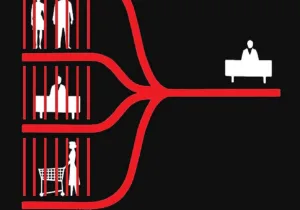
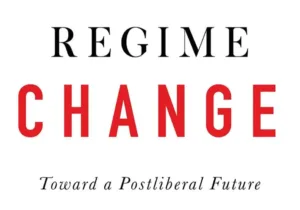
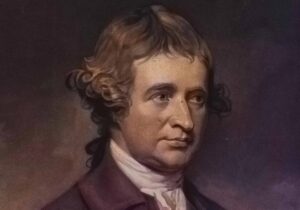
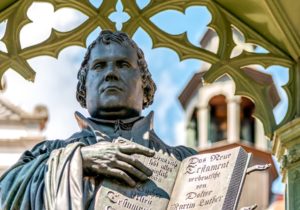
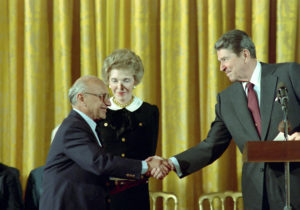

 Sponsor a student for Christianity & National Security 2024
Sponsor a student for Christianity & National Security 2024